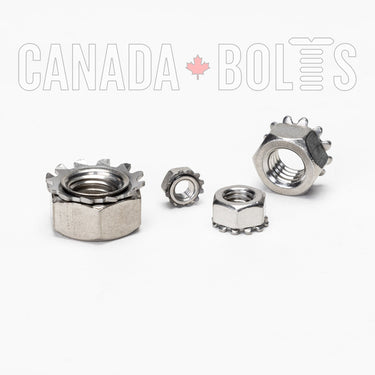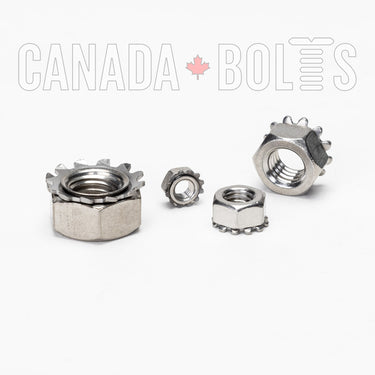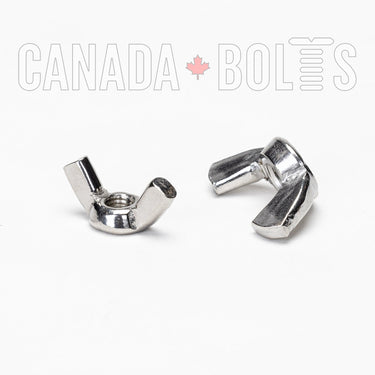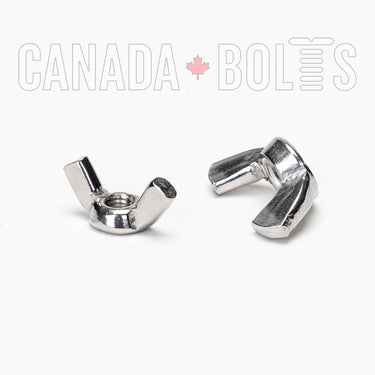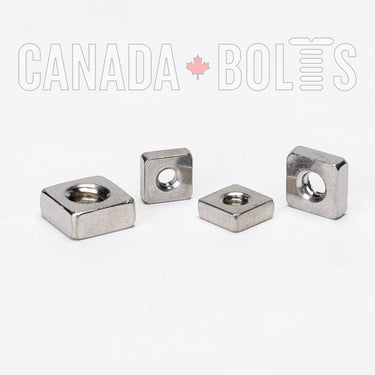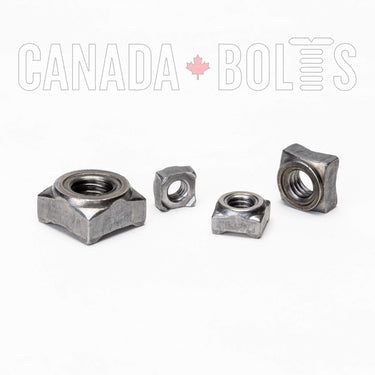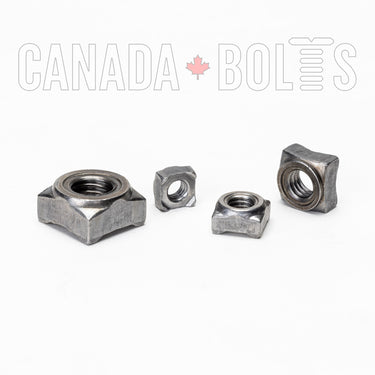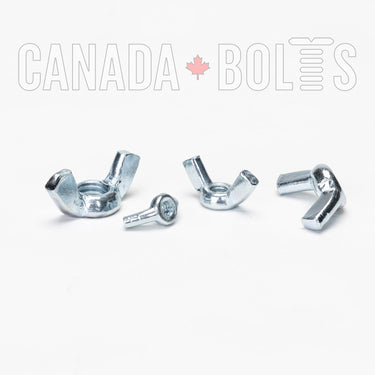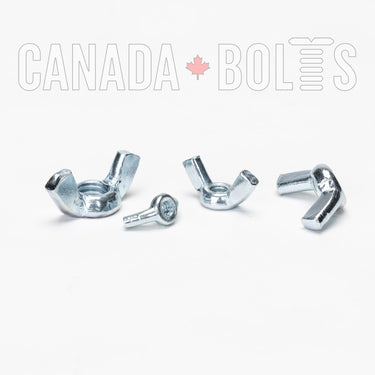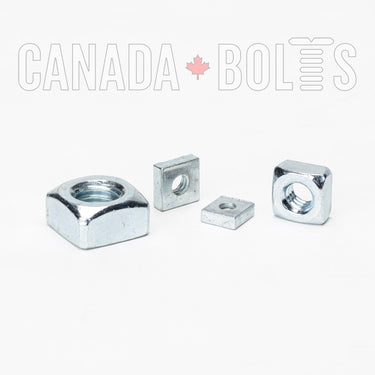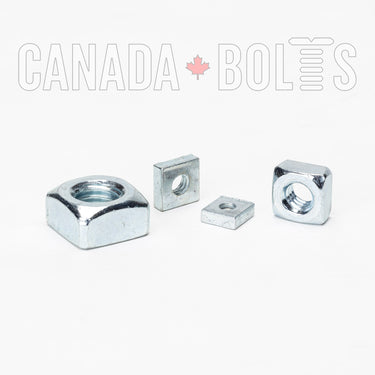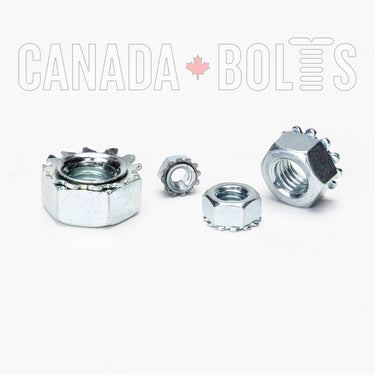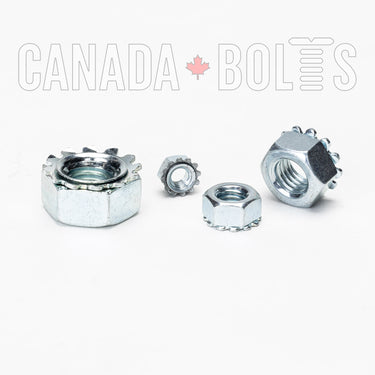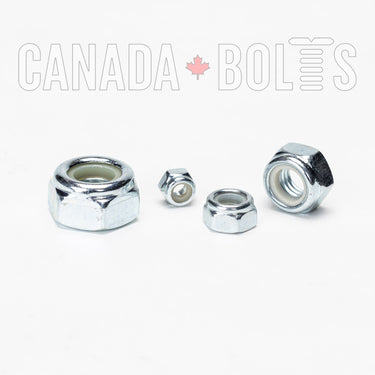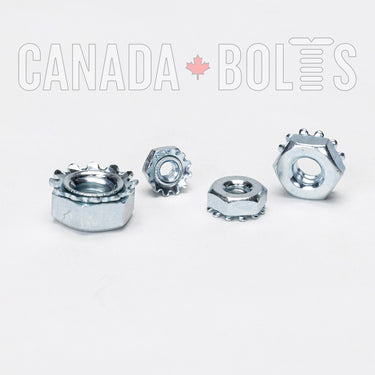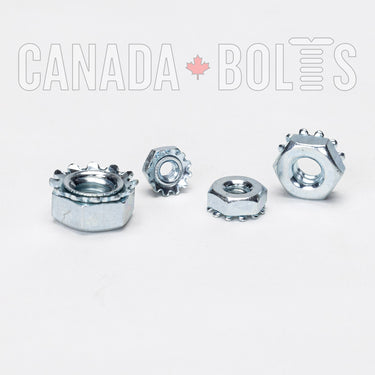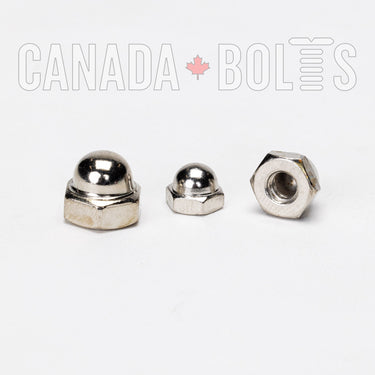Ever struggled with choosing between metric nuts and imperial nuts? Wondering which nuts will work best for your next project? Then you're in the right place.
At Canada Bolts, we bring a wide collection of hardware nuts that fit your every requirement, whether you are an engineer, a contractor, or a DIY lover. From small nuts to heavy-duty construction nuts, we have everything you need because your project deserves precision and performance.
Why the Right Fastener Nut Matters?
The strength of any construction is decided by its connections. So you will have to buy strong hardware nuts. Made to pair with bolts and screws, thia nuts hold structral components together. They help to bear the weight, resist vibrations, and maintain the integrity of the construction over time.
Whether fixing industrial machinery or installing a shelf at home, buying the right nut will make a big difference between a secure fit and structural failure.
Industry Spotlight: Common Nut Applications
Where are these nuts actually used? The answer: in various industries. From big buildings to a car’s engine, these nuts are invisible parnres of bolts and screws that keeps everything sceurely together. Take a look at how different industries rely on nuts:
Construction and Infrastructure
From big buildings to bridges and highways, architects and construction engineers use nuts to make their projects structurally strong with long-bearing constructions. Imperial nuts are mostly used in North American construction projects, while metric nuts are used in international infrastructure projects.
Common Types:
- Coupling nuts
- Hex nuts
- Flange nuts
Automotive and Transportation
In vehicles, precision is essential. Metric nuts are essential for engine components, fixing wheels, brakes, and exhausts. They help to withstand heat, vibration, jerks, and continuous movement.
Common Types:
- Acorn cap nuts
- Hex lock nuts with nylon insert
- Sert nuts(Rivet nuts)
Aerospace
This industry demands absolute precision, durability, and safety. Aircraft components and advanced defense systems are built with lightweight but strong nuts to hold everything tightly in extreme weather conditions.
Common Types:
- Hex lock nuts with nylon insert
- Sert nuts(Rivet nuts)
Manufacturing and Machinery
In factories, fastener nuts secure parts of machines, conveyor belts, robotics, and more. Maintenance teams use both imperial and metric bolts to build machinery and manufacturing equipment for strength.
Common Types:
- Square thin nuts
- Keps K Lock Nuts
- T nuts
Electronics
Innovation and design are the driving force of this industry. From washing machines to TVs and gadgets, all have dozens of nuts to hold internal components together. They are corrosion-resistant, easy to install, and have thermal stability for long-term efficiency.
Common Types:
- Coupling nuts
- Well nuts
- Square nuts
Metric vs. Imperial: Which Standard Should You Follow?
Choosing between metric nuts and imperial nuts is all about compatibility, accuracy, and performance. Whether you're buying for a big construction project or a small DIY project, understanding the difference between these two is essential:
What’s the Difference?
- Metric Nuts: Metric nuts are measured in millimeters (mm) and are used internationally in countries like Europe, Asia, and other industries that follow international ISO rules.
- Imperial Nuts: Imperial nuts are measured in inches and are commonly used in the United States and some parts of Canada, especially in legacy systems and old equipment.
Key Considerations
- Thread Pitch: Always double-check your specs because a wrong thread pitch will not fit a metric bolt, and the same goes for imperial bolts.
- Tools Used: Metric and imperial measurements require different sizes of wrenches and sockets. Using the wrong tool can increase the risk of stripping, or the part may become extra tight and hard to remove.
- Consistency: Avoid mixing metric and imperial nuts in the same assembly. This may lead to torque, thread damage, and increased maintenance.
Why Shop from Canada Bolts?
- Wide collection of metric and imperial nuts
- Industrial-grade quality for various uses
- Competitive pricing
- Fast and reliable shipping
- Easy return and refund policies
- Bulk discounts available
Ready to Order?
Check our collection of screw nuts today. Whether looking for metric nuts or imperial nuts, we‘ve got you covered. Also, shop the partner of nuts, find the perfect bolts and washers for a secure fit and strong nut construction.
Shop the right nut, right now, from Canada Bolts.

